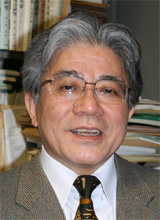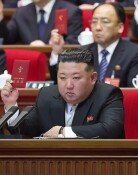S. Korea-Japan diplomacy after everything goes wrong
S. Korea-Japan diplomacy after everything goes wrong
Posted August. 19, 2020 07:47,
Updated August. 19, 2020 07:47


South Korean President Moon Jae-in sent messages both strong and warm to Japan in his speech at the 75th Liberation Day commemoration. He said the government was ready to sit down with the Japanese government at any time based on the Supreme Court ruling that said individual’s right to demand compensation for illegal activities has not expired. He also said he was willing to discuss ways for amicable settlement of the issue that upholds the ruling and victims can agree upon.
But resolving the issue of forced labor is not simple. Seoul justified its inaction in the court ruling based on separation of powers, but Tokyo has worried about South Korea’s legislation and administration working together to nullify the 1965 Claims Settlement Agreement between the two countries. It would take every measure (retaliation) including recalling the Japanese ambassador in South Korea if it thinks the essence of the agreement has been violated. Then South Korea would have to respond to it, which would put the relations between the two countries in the worst condition.
The forced labor issue is even more difficult to resolve now as it has escalated into a legislation issue. Even worse, the Japanese government counterattacked by relating the issue with export management and politics. Currently, the discussion itself is impossible due to the entanglement. The only way to resolve it is to take a step back and discover a wise solution or even an expedient as a solution involving concession of one side is not possible to draw.
The U.S.-North Korea negotiations and inter-Korean talks that the Moon Jae-in administration is deeply interested would not have smooth progresses either. North Korea does not see the two rounds of summit meetings as successful, which can be seen in the recent statement of Kim Yo Jong, the first vice director of the Central Committee of the Workers' Party of Korea. That means there would be no summit meeting unless the U.S. significantly changes its stance even if U.S. President Donald Trump gets reelected. Another failure in the trial to hold a summit would irreparably harm North Korean leader Kim Jong Un’s dignity.
South Korea and Japan are advanced middle powers that share basic goals and benefits. If there are conflicts between the U.S. and China, South Korea and Japan naturally share the same diplomatic strategies. They should minimize their differences in recognition of history, nationalism and leadership. The summit between South Korea, China and Japan (hosted by South Korea) to be held in November could be the last chance.







